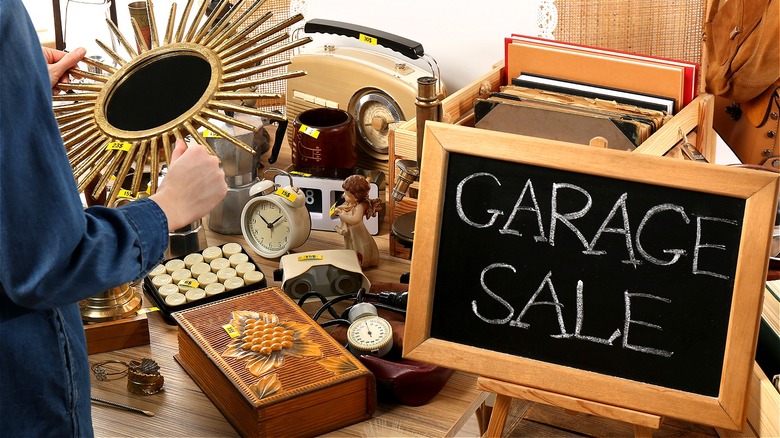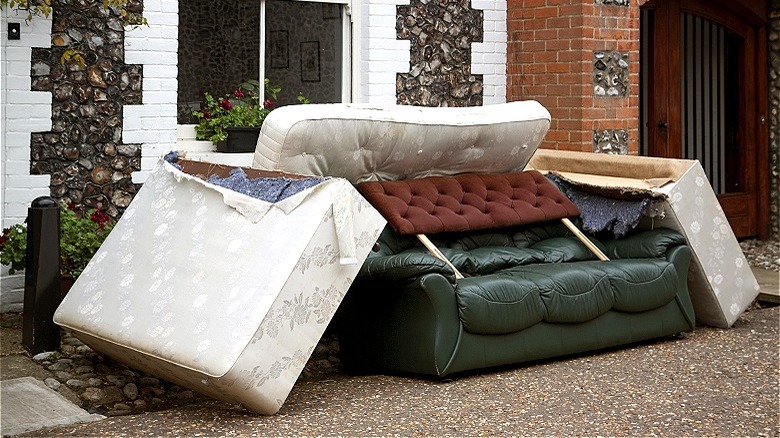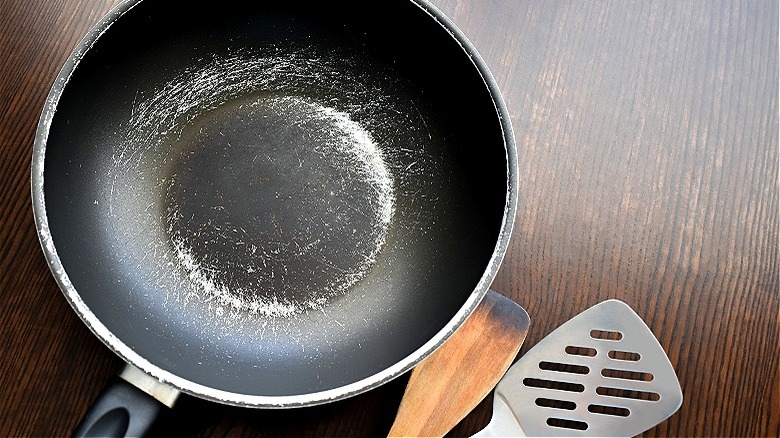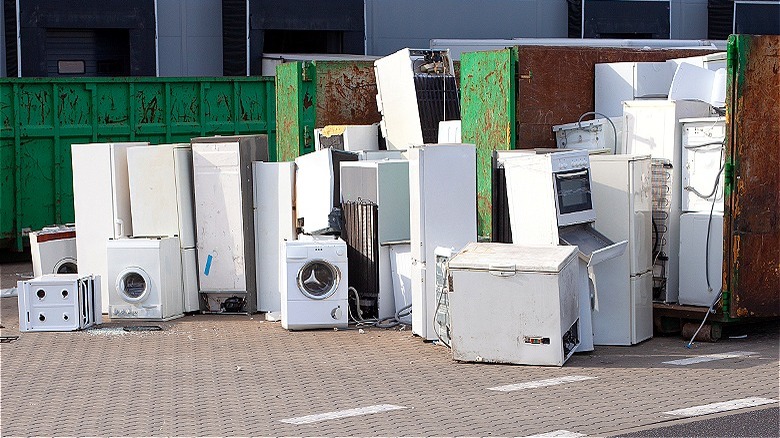Things You Should Never Buy Used
With the arrival of spring also comes the time-honored ritual of giving homes and apartments a thorough spring cleaning. A byproduct of that deep cleaning is yard sales, also known as garage sales, where unused or unwanted items are frequently unloaded at a deep discount. Alternatively, perhaps you're a denizen of local thrift stores for their cool vintage vibe and the environmental benefits that come from giving items a second life.
Indeed, buying a used item can often be a great way to save some of your hard-earned cash, while simultaneously doing your part to recycle for the sake of the planet. For example, Money Digest has repeatedly professed against buying a brand new car in favor of pursuing a lightly pre-owned model instead, such as vehicles that come off leases. However, before you put on your best bargaining face, be aware there are certain items that even the most thrifty types shouldn't consider buying used.
Mattresses and other bedding
This one almost seems like it goes without saying, but buying a used mattress is seldom a good idea. Even if the mattress looks clean on the outside, it can be harboring some gross guests, like dust mites or bed bugs, inside. If those sanitary pitfalls aren't enough to discourage you, mattresses also have a certain life span. It's very possible, if not probable, that a used mattress will have degraded support from when it was brand new.
Beside becoming saggy from the weight of the prior owner, the comfort technology might just be outdated by modern standards. In any case, it's just not worth the savings to risk bringing vermin into your home and/or depriving yourself of a good night's sleep and a productive next day. Pretty much all of the caveats for buying used mattresses also translate into buying used pillows, which should also be avoided. However, items like sheets, pillowcases, and comforters, which can be thoroughly washed prior to use are fair game for buying at garage sales and thrift stores.
Helmets
If you've recently splurged on a new bicycle, motorcycle, or set of skis, it may be tempting to save some money by purchasing a previously owned helmet for protection during those activities, but you really shouldn't. According to experts, helmets are designed for one-time use. That is, to provide the highest degree of protection in their first strike or crash. Even though a helmet might appear to be in good cosmetic condition, it could have been previously impacted and hence, lost some degree of its effectiveness. If older, it's also possible the helmet is an outdated design and has been surpassed by newer models with higher safety ratings. At worst, it may have even been part of a product recall.
Besides the safety factor, there's also hygiene to consider. Some helmets, like for motorcycling, will have a fabric surface inside the helmet that someone else has been sweating into for potentially years — yuck! The lining inside of a helmet definitely falls into the same category as a pre-owned mattress or pillow as something you'll want to avoid for sanitary reasons alone, never mind the questionable level of protection.
Nonstick pots and pans
Not all used cookware is off the figurative table when shopping for bargains, but you'll definitely want to avoid previously owned pots and pans that have nonstick coating. Such coating can degrade over time, something that's worsened by scratches, overheating, and dents. Nonstick coatings often contain per- and polyfluoroalkyl substances (PFAS), which may be safe enough when undisturbed, but when a cooking surface starts to deteriorate, these chemicals can be ingested by humans.
Sometimes known as "forever chemicals," these compounds remain in the body for a long time and can lead to lowered immunity, kidney disease, high blood pressure, and cancer in some humans, per a recent paper published in the journal Environmental Toxicology and Chemistry. Besides avoiding the purchase of used nonstick cookware, you'll also want to check on the condition of pots and pans you already own in your household for scratches or wear, and discard any that are compromised. Not all nonstick cookware contains dangerous chemicals, but it's just not worth the risk to yourself, family, and friends to continue using something that is potentially harmful.
Medicine, vitamins, and cosmetics
Buying used medicine, vitamins, pills or other medications might seem like another instance where common sense alone tells thrifty shoppers not to go there. Yet still, these products frequently turn up at garage sales, offered by shameless sellers wanting to extract every last dollar of revenue from their possessions. Besides the questionable legality of buying and/or selling prescription drugs without a license, they could also be outdated or expired.
If you're on the other side of this equation as someone who wants to dispose of old prescriptions or other medications, many drug stores will dispose of them for you. Some, like Walgreens, even offer self-service kiosks at certain locations.
Similar to used medications, it's also recommended to steer clear of used perfumes and cosmetics when browsing garage sales. Even unopened cosmetics and other toiletries are subject to expiration dates. Worse still, those that have been opened may contain germs, bacteria, and fungi. It's sometimes tough to pass up a bargain, but in this case, you're fully justified to head down to your local beauty store like Sephora or Ulta instead.
Appliances and other large electronics
We get it. With prices as low as $50 to $100 at thrift stores and yard sales, it's tempting to grab a used, though new-to-you, washing machine, TV, or garage refrigerator you've always wanted. Some sellers may provide electrical outlets to test an item, but caution is still warranted. Even if the item appears to be working at the time of purchase, it's definitely eaten into its life span when compared to a new version of the same appliance, which comes covered by factory warranty. What's more, older appliances are typically less energy-efficient, which can run up your electrical bill.
That all being said, there are instances where used appliances and large electronics make sense. For instance, if you're a handy type that's able to make minor repairs. As well, perhaps you only need use of an appliance for a short while and not a lifetime, like as a renter-provided washer and dryer. In any case, it's a recurring theme of this article to give your pre-owned appliance a thorough cleaning and sanitizing before pressing it into service. Also, check whether cords are included because items like cooking ranges and clothes dryers don't typically come with permanently attached cords. If there is, make sure the cord is in good condition with no missing insulation.





